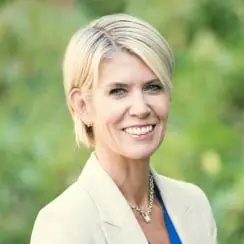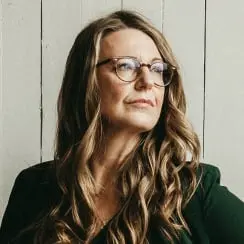 | 1 LU / HSW |
 | 1 LU / HSW |
Call to Action:
Abstract: Delve into the essence of sustainability and its profound impact on fostering real change within educational settings. To ignite transformation, we must first cultivate a space that welcomes open and courageous dialogues on equity, drawing in diverse perspectives from all community stakeholders. This inclusive approach lays the groundwork for addressing the complexities of implementing widespread cultural shifts that resonate throughout the entire educational community. At the heart of this discussion is the concept of a sustainability culture—an ethos that not only champions our planet's well-being but also embodies core values of equity and inclusion. Discover how a sustainability culture sparks joy and optimism within early learning spaces and K-12 school districts alike, offering safe, healthy environments that promote ecological responsibility and often yield cost efficiencies. Moreover, delve into how sustainability initiatives contribute to the holistic well-being of students, educators, and all members of our educational communities. Through compelling examples, we'll examine how sustainable spaces serve as catalysts for nurturing a community culture rooted in equity and inclusion. This culture, in turn, fosters holistic student development and paves the way for a more equitable and just future for all. Join us as we unpack the opportunities and challenges of implementing a framework that harmonizes leadership, environment, and equity, and discover the transformative potential that awaits within our educational spaces.
Learning Objectives:

Sandra-Lynn is an educational leader driving systemic change for inclusivity in public education. Her educational background includes Bachelor Degrees in Education and Special Education from Memorial University, a Masters of Education from UBC, and a Doctorate in Educational Leadership & Policy from the University of Kansas. Sandra-Lynn began her career teaching in Special Education on the east coast of Canada and has been a school administrator and district leader in West Vancouver for the past 20 years. Her work focuses on the importance of human connection – the value of nourishing both the heart and the mind as the foundation of successful healthy human development, community connections, professional learning, student engagement and equitable access to educational excellence for all.

Bridgitte is a thought leader dedicated to creating better learning environments. Raising a strong, resilient generation of learners requires significant social change, and Bridgitte invokes conversations and takes action on how to do better business to facilitate such change. Through her work with Natural Pod, she is committed to sharing the importance of learning environment design with the global education and design community, shifting the paradigm of learning spaces toward a more collaborative, intentional, and student-centric model.
Educational Visioning
Exhibits an understanding of best and next practices related to educational leadership, programming, teaching, learning, planning and facility design. Establishes credibility with educators, community members and design professionals while conceiving and leading a community-based visioning process. Demonstrates the ability to articulate the impact of learning environments on teaching and learning and uses that ability to facilitate a dialogue that uncovers the unique needs and long-range goals of an educational institution and its stakeholders – translating that into an actionable written/graphic program of requirements for the design practitioner.